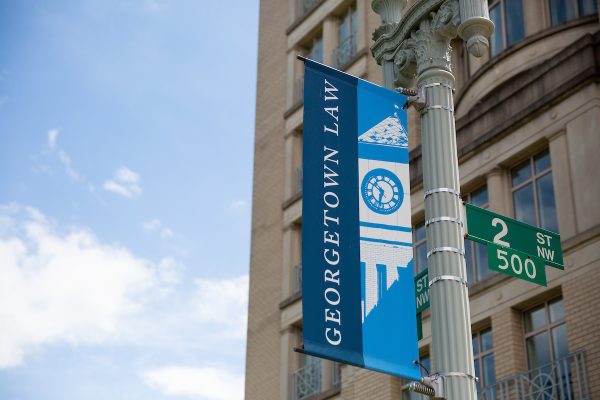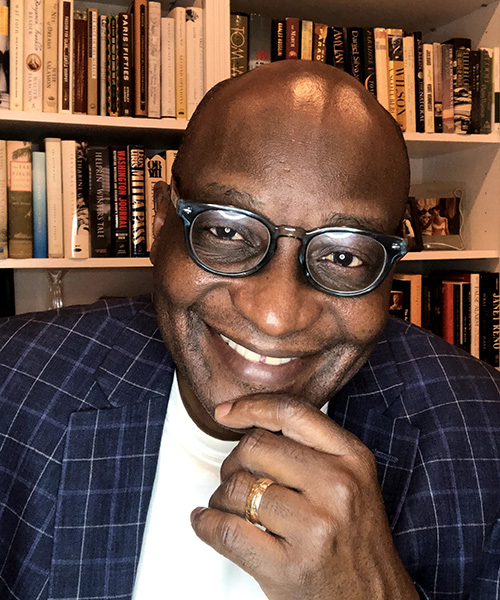A Georgetown University Law Center (GULC) student group boycotted a recruiting event with a top law firm over the firm’s cooperation with President Trump, the student group announced in a March 31 letter.
The Georgetown Energy Law Group (GELG), which advocates for energy policy, sent an open letter to Skadden, Arps, Slate, Meagher & Flom announcing its members would not attend an April 1 recruiting event at the firm’s Washington, D.C., office. The student leaders cited Skadden’s March 28 agreement to provide over $100 million in pro bono services to Trump’s political causes while discontinuing its diversity, equity and inclusion programs to avoid an executive order targeting its federal contracts and clearances.
In the letter, GELG executive board members said Skadden’s actions did not reflect GELG’s commitment to justice and the protection of the law.
“As future members of the legal profession, we seek to align ourselves with institutions that uphold justice, equity and professional integrity,” the board members wrote in the letter. “We cannot, in good conscience, engage with an organization that has so visibly retreated from these values in the face of unlawful political pressure.”

Carly Tolin (LAW ’26), GELG’s outreach chair and the letter’s co-writer, said GELG’s executive board collectively decided to boycott the recruiting event to take a stand against the Trump administration.
“It is important that the legal profession be independent and preserve the rule of law, and when we as student leaders see that being threatened, we have the option to do what’s within our power to take a stand,” Tolin wrote to The Hoya.
Skadden’s agreement with the Trump administration came two weeks after Trump targeted another top law firm with an executive order terminating federal contracts in a March 14 executive order. Skadden negotiated a deal with Trump to avoid a similar executive order.
A representative from Skadden’s D.C. office did not respond to The Hoya’s request for comment.
Alanna Belmont (LAW ’26), GELG co-president, said GULC Dean William Treanor’s March 6 letter defending the law school’s DEI initiatives in response to the U.S. Attorney for D.C. inspired GELG to cancel the recruiting event.
“Dean Treanor’s commitment to upholding the rule of law, the Constitution and core legal principles is inspiring,” Belmont wrote to The Hoya. “Dean Treanor’s stance made it easier for our organization to choose not to further engage with Skadden, and made us less afraid that we would be damaging the reputation or job prospects of our fellow students.”
Tolin said GELG received support from the GULC community after they announced their decision.
“Though we have not received a response from Skadden, we have received an overwhelmingly positive response from our fellow GULC students and some members of the broader legal community,” Tolin wrote.
Nico Cefalu (CAS ’27), president of Georgetown’s undergraduate chapter of the legal advocacy nonprofit American Civil Liberties Union, said it is important for students to stand up to the Trump administration.
“It really says that there are still people, especially young people, who are unwilling to give in to Trump’s attempts to just centralize so much power and go after anyone or anything that he thinks has wronged him,” Cefalu told The Hoya. “It just really gives me some hope.”
Belmont said Skadden and other law firms’ cooperation with the Trump administration concerns her as a law student because it suggests Trump’s power over the legal profession.
“When these firms cave to such political pressure, it sends the wrong message to the general public — a message that he has more power than he actually does,” Belmont wrote. “Further, failure to fight back shows such a lack of moral character; the firms that ‘bend the knee’ to Trump shirk their responsibility to uphold the notions of justice, equity and professional integrity as required by the legal profession.”
Belmont added that it is important for law students to work together to hold firms responsible in the face of political pressure from the Trump administration.
“Collective action is a powerful tool, but it requires all of us to come together to work,” Belmont wrote. “If we want to continue to have a functioning legal profession, it’s up to us to dictate what’s acceptable and unacceptable behavior.”







